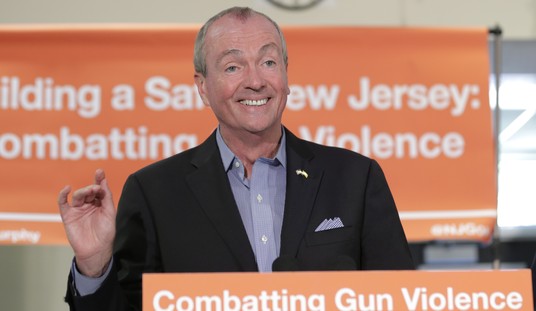I think we all knew there would be more than a few of these cases reverberating around the country following the Supreme Court’s decision on gay marriage, and this time it’s popping up in Ohio. Some municipal judges are either refusing to perform the ceremonies for gay couples or stopping performing marriages entirely, citing religious freedom objections. This prompted an inquiry at the state supreme court and their advisory Board of Professional Conduct has come back with an answer. Now if only somebody can figure out exactly what they meant.
Amid scattered instances of balking, Ohio judges who perform marriages cannot ethically or legally refuse to wed same-sex couples, an arm of the Ohio Supreme Court counseled the jurists on Monday.
And, while some municipal, probate and county court judges do not perform any weddings, their refusal cannot be based on “personal, moral or religious objections” to same-sex marriage, according to an advisory opinion.
The Board of Professional Conduct issued the opinion after it received requests for guidance following the U.S. Supreme Court’s 5-4 ruling overturning Ohio’s constitutional ban on same-sex marriage and legalizing it nationally on June 26.
This story has the potential to turn into a huge mess because of the multiple layers of complexity involved. First there is the question of whether or not municipal, probate or county judges can pick and choose which weddings they want to perform to begin with. If they are openly opting to pass on participating in a gay wedding while regularly conducting traditional ceremonies, that’s a battle they’re probably going to lose. It’s not all that cut and dried because, yet again, marriage is such a unique beast in the legal codes. Unlike a drivers license or a building permit, the government isn’t the only place you can go to have a ceremony performed (as opposed to the issuing of the actual marriage license which is government only) and judges certainly aren’t the only ones who do it. Couples can seek out a religious institution, a Justice of the Peace or any number of other officials. But the fact that it’s a service being offered by a public servant would probably doom any protest even when it’s based on religious liberty.
But what if the judge refuses to perform any ceremonies? As the advisory board notes, there are already judges who simply don’t agree to do weddings because their schedules don’t allow for it. That’s where the advisory board’s opinion goes from hazy to downright obscure. They seem to feel that busy judges don’t have to perform ceremonies, but the reason for not doing it has to be regulated.
“Judges are further advised that personal, moral, or religious beliefs should not be a factor … and to be aware of the impact that a decision to decline to perform all civil marriages may have on the public’s perception of the judiciary.”
Wait… they need to be aware of what it might do to the public’s perception of them? So this is just about politics and not the law at all? The board then goes one step further after all of this blathering and essentially says to pay no mind to them because they really aren’t equipped to weigh in on the legal merits in the first place.
The board said it was not empowered to determine whether state law makes it mandatory — or optional — for municipal, probate and county court judges to perform civil marriages.
So there’s one of the fundamental questions to be decided and it appears to be one which has never come up before. Just because a judge has the power to marry people, is it part of their job and an obligation for them? Or is it, as it’s long been treated, more of a side option which they may be honored to perform while their real job is to be sitting on the bench and deciding cases? It seems to me that judges who simply state that they are too busy to handle weddings on top of their judicial duties couldn’t be touched. But that doesn’t change the situation for those who choose to make the religious liberty argument and say that they will do some, but not others.
As I said at the top, this one is probably going to be a mess.








Join the conversation as a VIP Member